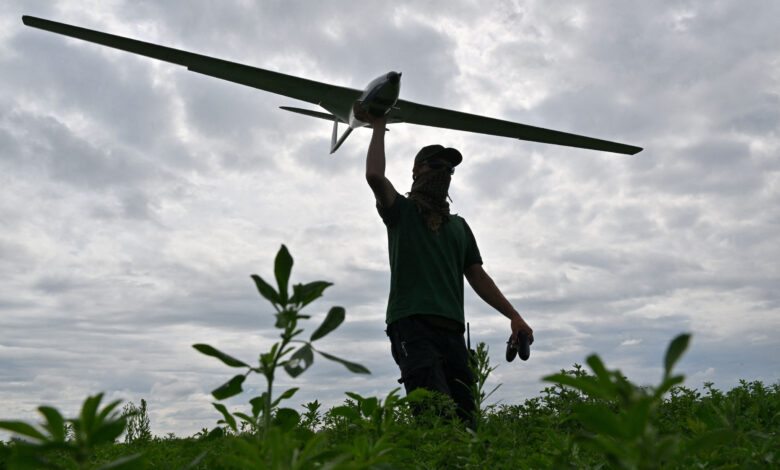Russia Deploying New AI-Powered Anti-Drone Devices

Russia has developed new artificial-intelligence (AI) powered anti-drone devices for use on the battlefield in Ukraine.
The mobile anti-drone warfare system, called “Abzats”, is capable of jamming all active frequency ranges. It is already being used by Russia’s military in the ongoing war in neighboring Ukraine, general director of the Russian “Geran” Research and Production Enterprise Oleg Zhukov told the country’s state-run news agency Tass on Tuesday. Newsweek has contacted Russia’s Defense Ministry for comment by email.
SERGEI SUPINSKY/AFP/Getty Images
AI is emerging as a “significant asset” in the ongoing war in Ukraine, which began when Russia launched a full-scale invasion of the country in February 2022, Samuel Bendett of the U.S. think tank CNA has said. Both sides are attempting to use AI in their attempts to pull down and knock off course enemy drones before they can complete their missions, Newsweek previously reported.
“The Abzats mobile jamming platform implements artificial intelligence algorithms. This weapons system can move along a trajectory and carry out electronic warfare tasks without operator participation. The product is already being used in a special operation zone,” Zhukov said.
He said that the device is equipped with a jamming system that can be operated remotely.
“The Abzats can jam the entire spectrum of frequencies at which unmanned vehicles move or fly,” said Zhukov.
Days earlier, he told Tass that Russia had developed another AI-powered portable anti-drone jammer called the “Gyurza”, which is being used by the Russian army in Ukraine.
The Institute for the Study of War, a U.S.-based think tank, said in analysis of the conflict in Ukraine on April 22 that Zhukov said the “Gyurza” jammer’s AI is capable of independently determining if a drone is operating on a Ukrainian or Russian frequency and only jamming the isolated frequencies that Ukrainian drones are operating on.
“This innovation is likely an effort to address recent claims that Russian electronic warfare (EW) systems frequently interfere with Russian drone operations when Russian forces try to down Ukrainian drones by jamming all frequencies in the vicinity of the system, as opposed to attempting to only jam isolated frequencies in one area,” the think tank said.
In a report published in July 2023, Bendett said that “on balance, Ukraine seems to be gaining more from using this technology.”
“Although it’s too early to predict whether such a technological edge will translate into significant gains against entrenched Russian positions,” Bendett added. “So far, Ukraine has managed to maintain a human-centric approach toward AI use, with operators making the final decisions.”
Do you have a tip on a world news story that Newsweek should be covering? Do you have a question about the Russia-Ukraine war? Let us know via worldnews@newsweek.com.
Uncommon Knowledge
Newsweek is committed to challenging conventional wisdom and finding connections in the search for common ground.
Newsweek is committed to challenging conventional wisdom and finding connections in the search for common ground.



